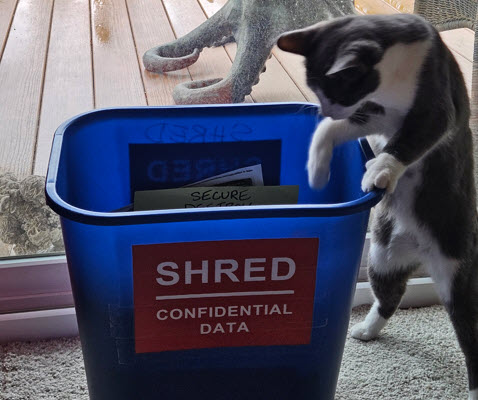In the landscape of financial management, one often encounters a critical yet frequently overlooked aspect: auditing closed accounts managed by third-party collection agencies. While this task may not be immediately captivating or urgent, neglecting it could potentially bring consequences if not handled properly.
Auditing Third-Party Collection Agencies: Why It Matters
Before going into the specifics of auditing closed accounts, first understand why auditing your third-party collection agencies could be considered an important part to add to your everyday operation. As a Creditor, do you audit your third-party collection agencies? Auditing your third-party collection not only maintains an open line of communication between you and your vendor but also allows you to be engaged in your accounts and the entire collection process. Here are some potential reasons why, as a creditor, you may want to consider auditing your third-party collection agencies:
- Compliance and Regulatory Adherence: How do you confirm that your vendor is following state and federal guidelines as well as following your standards that you outlined in your contract? Auditing ensures that these agencies comply with state and federal guidelines, as well as following industry best practices and internal policies.
- Quality Assurance: Auditing provides insight into the quality of services provided by your third-party collection agencies. It allows you to evaluate their performance, efficiency, and adherence to best practices. Identifying areas for improvement enables you as a creditor to discuss and work with your vendor to enhance the effectiveness of debt collection efforts and optimize outcomes.
- Risk Mitigation: By auditing your third-party collection agencies, you mitigate various risks associated with outsourcing debt collection activities. This includes the risk of non-compliance, data breaches, unethical practices, and subpar performance.

Auditing Closed Accounts: The Crucial Step
When auditing, there are many aspects that may be deemed more important than others. Reviewing how your accounts are closed may be one of those categories you may want to focus on for various reasons:
- Preventing Placement Errors: Incorrect close codes can lead to placement errors, where accounts are mistakenly reassigned for collection efforts. For instance, failing to close an account with the correct status, such as in the case of a deceased debtor, can result in unnecessary complications and potential legal issues. Auditing closed accounts promotes accurate record-keeping and potentially prevents such errors on future closed accounts.
- Assessing Work Effort: Reviewing closed accounts provides insights into the work efforts undertaken by collection agencies. Detecting discrepancies, such as accounts that haven’t been worked on for extended periods, allows you to address inefficiencies and improve collection strategies. Effective follow-up on closed accounts maximizes recovery efforts and minimizes losses.
- Confirming Accuracy of Account Closure: Auditing closed accounts verifies that each account has been closed accurately on your end. This is crucial for maintaining regulatory compliance, internal control, and transparent documentation. It also ensures alignment between your records and those of the collection agency, minimizing discrepancies and confusion.
- Checking Vendor Credit Reports: When auditing your closed accounts, look throughout the account notes to verify that the account has not been reported to credit bureaus since its closure. If the notes do not reflect when the account was no longer sent to the credit bureau, confirm with your vendor that the account has stopped reporting. If an account is reopened with another collection agency and both agencies begin reporting it, this could lead to customer disputes, potential future issues and confusion.
Auditing your third-party collection agencies is imperative for maintaining adherence to regulatory and contractual standards. There are so many possibilities for auditing; however, as a creditor, you decide what you want to look at and areas you want to focus on. Focusing on aspects like preventing placement errors, assessing work effort, confirming account closure accuracy, and checking vendor credit reports during auditing of closed accounts could potentially help maximize recovery efforts for you and your vendor while minimizing risks and discrepancies.

Author: Jennifer Evancic
Jennifer.Evancic@ResourceManagement.com
Jennifer Evancic is a third-party auditor valued by creditors and large organizations for her knowledge in call monitoring within the collections industry. With meticulous attention to detail and a firm grasp of regulatory requirements, she ensures compliance with clients’ criteria and state and federal regulations.
Jennifer audits collections calls, ensuring they meet client-specific criteria and comply with regulations, providing valuable insights and maintaining industry standards.
Beyond her auditing responsibilities, Jennifer takes the lead in organizing and facilitating monthly call calibrations. These sessions serve as a collaborative forum where clients and their vendors come together to discuss call monitoring results and address any findings or areas for improvement. Jennifer’s guidance fosters open communication and ensures alignment between clients and vendors, driving continuous improvement in collections practices.
Jennifer stays up-to-date with compliance and industry best practices by participating regularly in peer meetings, regulatory updates and industry webinars. This keeps her informed about emerging issues and ensures she remains a knowledgeable leader in collections compliance.
Sign Up for the Twice Monthly Newsletter
Just enter your email address at the top orange bar at:
Collection Compliance Experts – “The Power of Expertise: Oversight Perfected”
It’s that easy! Twice a month – we provide blog updates and Resources for the Collection and Industry Professional.
Your email is just for this newsletter. We never sell your information. No fee. Opt-out at any time.




